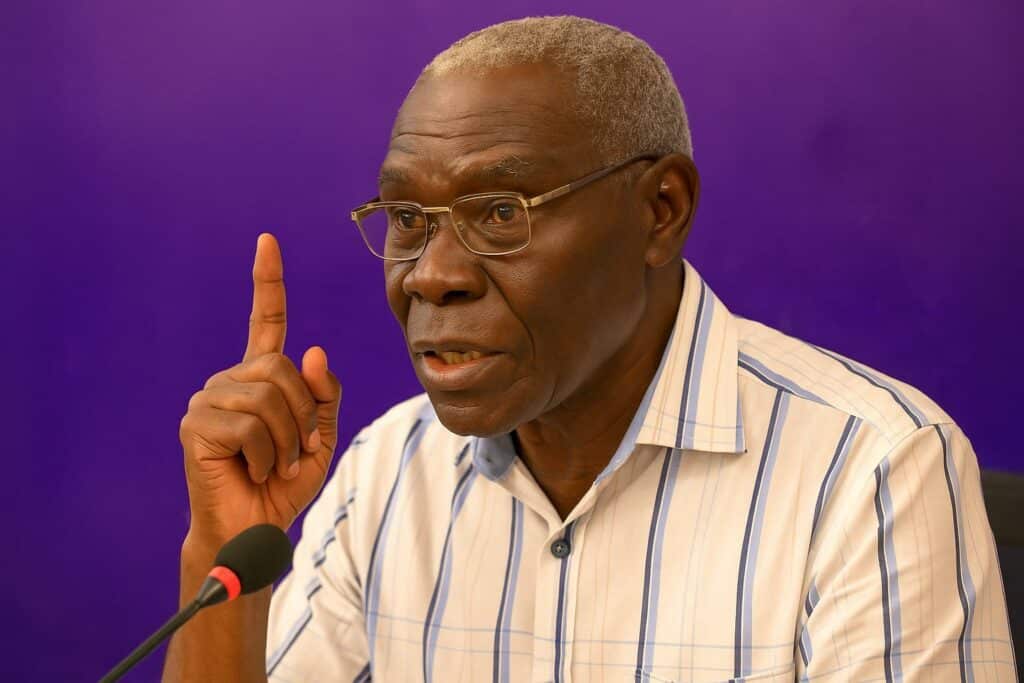A discreet but strategic coalition
From the outside, the Network of Consumer Associations may look like a modest civil-society platform, yet its organisational chart reveals a strategic geometry. Established on 18 February 2016 and officially recognised on 20 December 2022, the RAC federates six associations spread from Brazzaville to Ouesso and Makoua. This territorial footprint allows the organisation to monitor markets that range from the urban mass-retail clusters of the capital to more fragmented hinterland outlets. At its helm, Dieudonné Moussala presides over a board that also brings together François Lapa-Lapa as secretary and Patricia Marie Estelle Loemba as rapporteur, crafting a leadership designed to balance legal expertise, field experience and public-relations acumen.
Law 36-2024, a turning point
The RAC’s first visible victory materialised on 11 October 2024, when Law 36-2024 was promulgated. The text codifies five core rights: adequate information, quality of goods and services, access to essentials, effective redress and protection against health and safety hazards. Government sources underline that the final draft retained language proposed during joint workshops facilitated by the RAC and the European Institute for Cooperation and Development, particularly on strengthened disclosure duties for suppliers. By anchoring consumer rights in statutory law rather than ministerial circulars, Congo-Brazzaville aligns itself with continental best practice endorsed by the African Union Commission, a point discreetly welcomed by international partners.
Implementing rights on the ground
Legislation, however, only sets the starting line. In neighbourhood markets of Talangaï or the port-city of Pointe-Noire, traders admit they have yet to digest the new compliance obligations. Government departments are preparing implementing decrees, but officials candidly recognise that the text risks remaining “a well-bound brochure” if citizens are unaware of its remedies. For Dieudonné Moussala, the challenge is twofold: translating legal jargon into vernacular idioms and equipping local mediators with procedural reflexes. “A right that cannot be invoked is a right that does not exist,” he observes during a recent workshop in Brazzaville. The RAC has therefore prioritised radio programmes, school competitions and training sessions for mayors who often act as the first port of call in consumer disputes.
Regional ambitions within CEMAC
The RAC’s horizon is not limited to national borders. On 12 February 2025, the network signed the convention establishing the Federation of Consumer Associations for Financial Products and Services within CEMAC. Moussala, appointed second secretary-general of the new body, sees the mandate as an opportunity to influence cross-border rules on digital payments, mobile money fees and micro-credit transparency. According to banking analysts in Douala, disparate national regulations have long complicated supervision of pan-Central African lenders. A harmonised consumer-centric framework could, they argue, enhance confidence in regional financial integration and bolster investor appetite for Congo’s digital-finance start-ups.
À retenir
The RAC’s quiet diplomacy has already delivered a landmark statute that secures five fundamental consumer rights. Its next fight is practical enforcement, a task that requires both state resources and civic mobilisation. Regionally, the organisation is positioning itself as a key voice in shaping CEMAC’s evolving financial architecture.
Le point juridique/éco
Law 36-2024 introduces an inversion of the burden of proof in safety-related disputes, compelling suppliers to demonstrate due diligence once a prima-facie risk is established. Economists estimate that improved dispute-resolution mechanisms could lower transaction costs for households by reducing the incidence of counterfeit or sub-standard goods. For the business community, the statute rewards quality compliance and could eventually act as a non-tariff advantage when Congo-Brazzaville seeks broader market access within the African Continental Free Trade Area.

